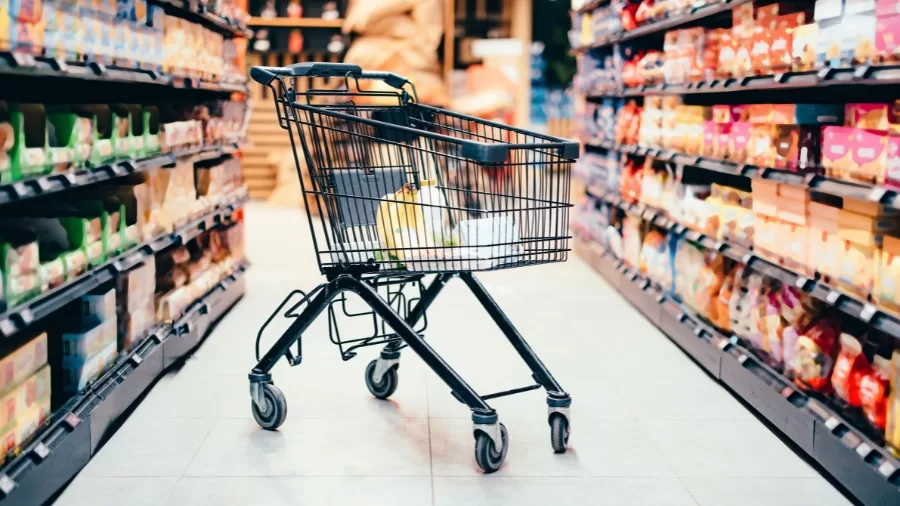The Economic Blackout: A Double-Edged Sword for Small Businesses and Main Street

- An objective of instituting an economic blackout, for example, is to stop customers from making purchases and thus decrease companies’ earnings without hurting personal businesses and the economics of small scales.
- The individual aims at big businesses, but the consequences might affect employment and property prices as well as introduce psychological issues to the community.
The concept of economic blackout suggests that customers should refrain from non-essential purchases to hurt businesses. The danger, however, is those consumers may assume to boycott every business, even the smallest ones that play a big role in the economy of the society. In most communities, apart from the commerce that small businesses enhance, they also serve as the next best dependents in enhancing other community aspects, and thus the people respect them a lot.
This is because small businesses bolster economic activities and growth in their areas by using revenues to create long-term projects in society, and others come to support these projects. They work on very little margins and are not like other cooperatives; this means that they earn day-to-day. If spending were to decline significantly, many small businesses may be forced to shut down or reduce employment levels.
What is an Economic Blackout?
Generally, the term economic blackout entails a premeditated economic downtime or a downturn caused by consumer action to change the market dynamics that adversely affect big corporations. In a nutshell, it is a consumer’s campaign to stop spending to discipline corporations to contain inflation levels and slash corporate earnings. Even though the big businesses remain the chief proponents of this campaign, other spheres where its implications are feared the most are the small businesses and the domestic economies.
Suspending Unnecessary Expenditure: The Dangers of Economic Blackout
Economic standstill compels the consumers to stop unnecessary expenditures to influence the big brands. Unfortunately, currently, there is the possibility of consumers boycotting all businesses, including the small businesses whose contribution to the local economy is most notable. Small enterprises not only trade but also serve as social supports and promoters of local activities; hence, they are quite crucial in any society.
Such businesses have the advantage of boosting the economy at the local level because they can channel the profits back into the community, support charitable activities, and also perform duties that are necessary to the community. In other words, they all operate at the margins, making them very cash-dependent, unlike the big corporations. Should the level of spending by the consumers change, these little business enterprises will collapse because they are always at risk of such situations.
Inflation and its causes
Inflationary pressures are not easing as the latest report on consumer prices indicates a strong 0.5% increase on June’s level, pushing the headline index forward by 3.1% over the past twelve months. Housing, energy, food, and petrol—all categories, unfortunately, where people’s sphere to constrain spending is less—remain the biggest areas of increase. The persistent rise in prices without any compensatory growth in wages is making family budgets, and subsequently, other measures, such as the economic blackout against companies, more relevant.
Broaden the Application of Boycott
There is a realisation that a one-day boycott may not present enough threat to the economic profile of the large corporations under the lens. It is, therefore, a strategy within the plan to suggest boycotts on specific targeted companies for shorter periods, extrapolating to longer periods. The intended approach is to gradually expand the time frame of the boycott with reasonable exclusion of small businesses and pressure imposing big box stores. The main objective in such scenarios involves altering the behaviour of corporations and the practices that sustain the status quo regarding prices and working conditions of employees.
The Possible Chain Reaction of Small Businesses
Small businesses such as cafés, boutiques, and services owned by people themselves and focusing on the functionality of the societal people are often associated with main streets. The consequences can be shocking, as people will not be spending money on anything during an economic blackout, and that would mean an immense loss of business for them. Corporate houses can afford to incur losses for a year or even more, but a small-scale business house cannot sustain itself with minimal or no income for a long period.
A stagnation in the economy does not simply hurt shops but brings down all the other facilities involved. The companies functioning as local providers, service vendors, and fabricators who lean on the shoulders of small enterprises will also become endangered financially. This can lead to a chain reaction of business closures and massive unemployment, thereby worsening the economic situation at the local level.
Managing Organised Change
The economic blackout illuminates the challenges associated with the connection between consumer boycotts and economic equilibrium. While the intention is to reduce corporate power by joint consumer resistance, the concomitant economic actors, the small business people, are worried about their economic environment in general. A move from an economic blackout day only to an adverse boycott of some goods that may target certain companies is a sign of more strategic consumer activity. Nevertheless, the movement shall have to sustain momentum and posit meaningful change for success to be achieved.
Unemployment and Related Social and Economic Effects
Coping with decreasing revenue might turn into a problem for firms and lead to layoffs or reduced hours of work. An increase in the unemployment rate is bound to reduce the overall spending power as well as all the relief budgets of the government if it strains them any further. Reduced consumer total disposable income would mean that consumption of all kinds of goods and services would drop, which might prolong and even complicate business during most recessions.
Communities that rely a lot on small enterprises for their employment would experience increased levels of poverty and income inequality. The reason is that the economic blackout is not just a dimming of the economy; if the measures aimed at tackling it are not well implemented, it might strain the already existing inequities and bring more issues to the economies of such places.
Real Estate and Housing Market Implications
The real estate market, more specifically the commercial real estate market, might also experience a red light in the event of an economic blackout. As business for small businesses happens, commercial spaces might find it hard to replace new tenants, thus resulting in empty shops over time while also giving the property an undesirable slump in value. This can also happen in the residential market, where property owners may not have the luxury to weather the storm without dipping into their home values.
Landlords who rely on their rentals of commercial properties for mortgages as well may find that they are unable to make the monthly payments, forcing mortgage foreclosures to skyrocket, albeit if it is constrained in a specific locality or community due to non-localised cases.
Changes in the Psychology of Societies
Financial difficulties cannot be only ascribed to monetary costs but also to the consequent depression amongst societies. The closure of the nearby business establishments does not just affect the economy in the given region but also the culture. The businesses lined along Main Street usually hold greater meaning than just being functional workplaces—they are central places that allow people to interact and socially bond where people typically feel that they belong. When there are no businesses open and the number of pedestrians decreases, the environment becomes eerie, which is bad for the mental state and the spirits of the people in the area.
Could the Economic Blackout Backfire?
Even though implementing an economic blackout can help reduce inflation and market fluctuations in the short term, its long-term impacts on the average person may not be good. Hence, policymakers need to ascertain the outcomes and weigh them in as they might affect the SMBs more than people think it would. Taking into consideration both sides of the matter, the policy measures might be directed at helping the small firms and their workers or at least ensuring that work is not lost by everyone in the community.
In Conclusion: A Delicate Balance
There is no easy answer for the necessity of an economic blackout to fix sick or wavering markets. It is good to rethink economic power and even to incite consumers to act; however, the bigger picture of the economy has to be considered. The most important thing that policymakers should remember in pursuit of a sound and sustainable post-crisis recovery is the welfare of ordinary people and the protection of small businesses.
With the systematic rhetoric, there will be an inevitable collapse. This is cold realism. Decision-makers underestimate the extent of externalities from an economic blackout. Likewise, decision-making within local areas at the expense of the stability of the economies themselves encourages the concerns these policymakers turn to most.










































